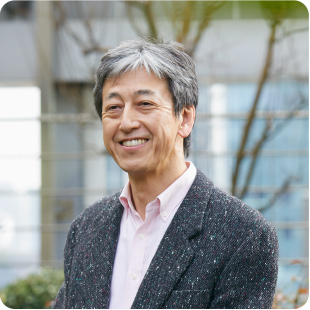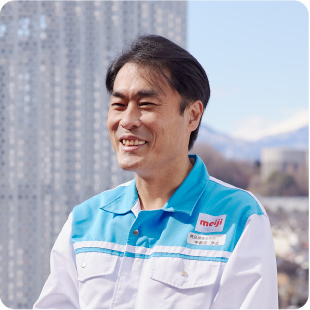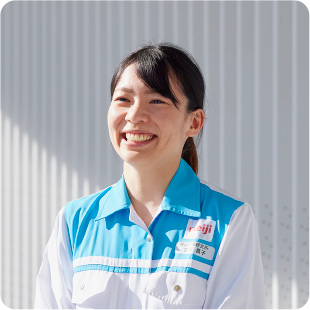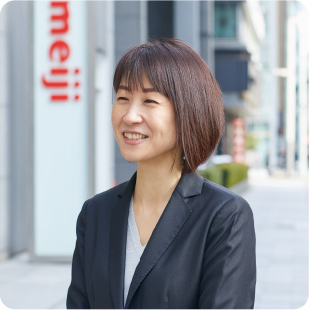
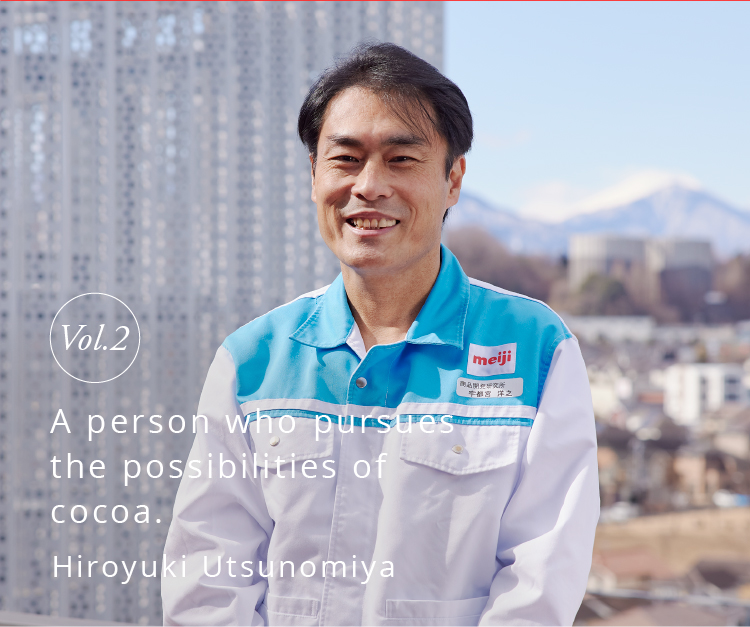
Hiroyuki Utsunomiya, Director of Cocoa Development Research Dept, made a quality cocoa by staying in cocoa producing areas for Meiji Cocoa Support for a long time and having repeated discussions with cocoa farmers.
He says, " It's important is not to lose sight of the nature of the problem." What are the significance and challenges of MCS that Utsunomiya looks ahead to?
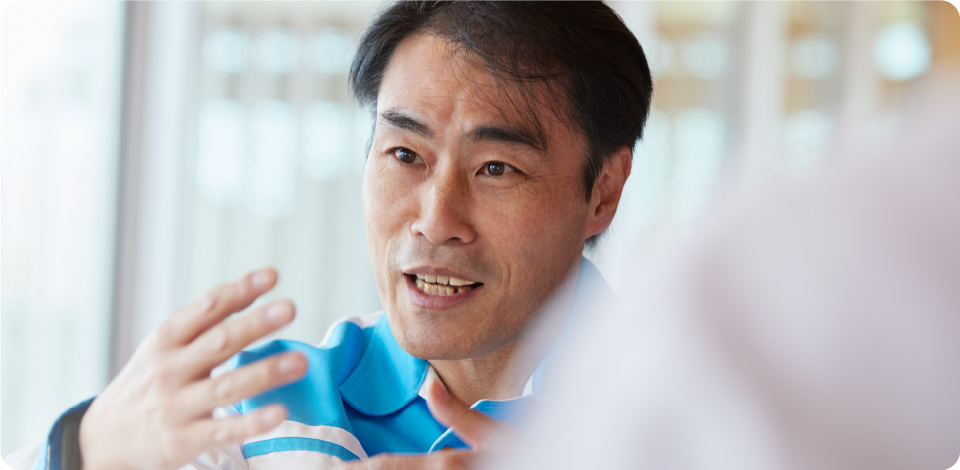
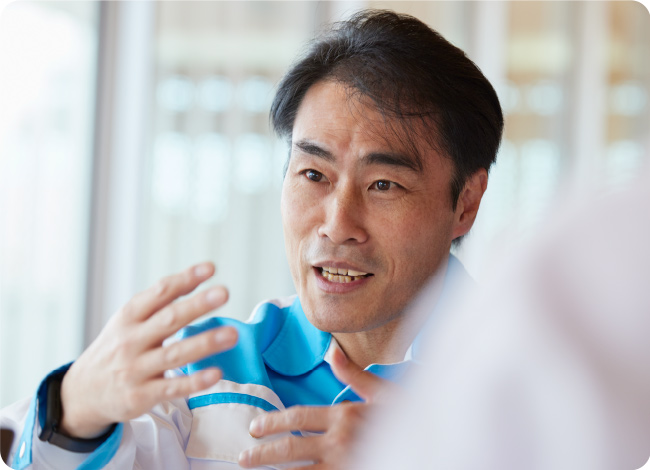
I wanted to change the way cocoa beans are made even though I was told “We don’tt need the power of Japanese people”.
The launch of cocoa Basic Research Group was the trigger for my continued visits to cocoa producing areas. This leads to various activities for later meiji cocoa support (MCS).
The reason why we suggested to visit the site was that Meiji only purchased cocoa through a trading company until then.
Of course, I visited the site in the past, but it was just a short stay to check the production area.
However, from the perspective of future business, I felt that we needed to differentiate ourselves from other companies in order to make chocolates. In society in the future, there was a feeling that we should not just buy cocoa, but should actively go into the local area and be involved in making cocoa bean for the chocolate we want to make.
The first three countries to visit to explore cocoa's production areas were Venezuela, Ecuador, and Peru. We had business with Venezuela and Ecuador before then, and we thought Peru would be an important new source. These visit was the starting point for MCS in these countries.
When I actually visited the site, I was surprised by the fact that the infrastructure and agricultural facilities were not in place, but the thing that shocked me the most was the difference in how I perceived the concept of work. The Japanese way of doing things was completely inappropriate in any of the three countries.
When I told them that I came around cocoa farmers to make cocoa better, they returned saying, "We are not in any trouble," and "We don't need the power of the Japanese."
When I told them that creating a good cocoa will make their lifestyles more affluent, they said, "I want to earn money with ease," and "Even if I don't work that hard, the outcome will be the same."
Still, I never wanted to give up. In preliminary surveys and on-site visits, we knew that there was the plenty of potential for cocoa beans.
Making quality cocoa together locally will support the livelihoods of cocoa farmers. And I thought it was a good opportunity for both Meiji and cocoa farmers to brighten up the future of cocoa.
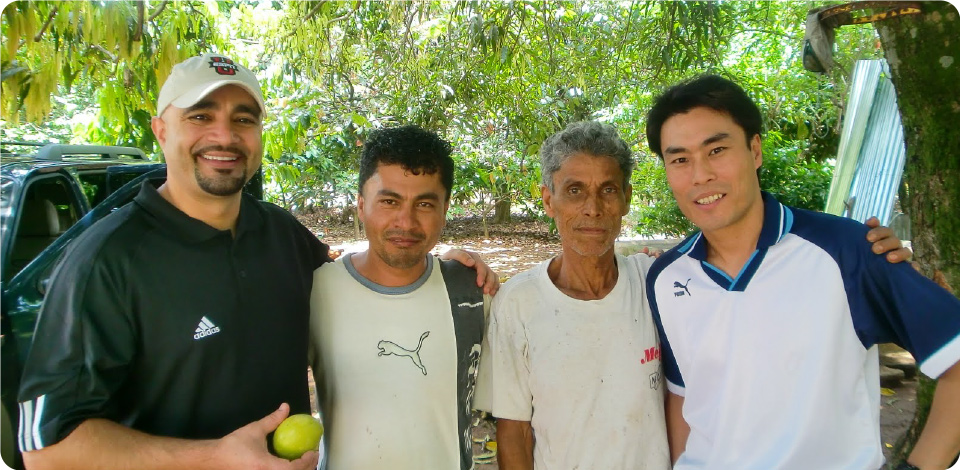
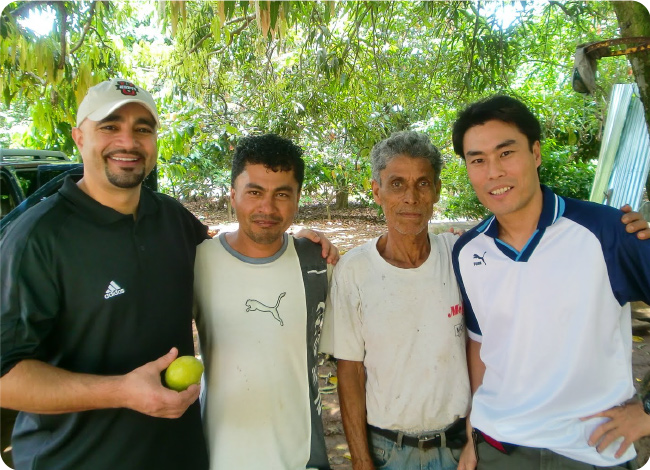
Cocoa To stabilize the lives of farmers, it is prerequisite that chocolate using that cocoa be sold.
To help cocoa farmers understand our thoughts, we explained how to use cocoa in the Japanese marketplace.
How chocolate is made from cocoa, what the flavor of that chocolate is, and how much the cocoa beans costto make delicious chocolate?
Furthermore, we not only explained them in detail, but also had them actually eat chocolate made from cocoa that they cultivated.
The reason why I did this is that very few cocoa farmers had actually eaten chocolate made only with their own cocoa beans.
When I got them to actually taste it, they brightened their eyes with delicious flavor, saying "It's delicious" and "I made this one."
In addition, we needed to understand the importance of the quality of cocoa in order to earnestly engage in the creation of cocoa.
We had them taste the most delicious chocolate made by cocoa farmers in the same area, and they felt for themselves what the quality of their beans was at the moment. And I wanted to deepen their understanding by demonstrating quality that is popular in the Japanese market.
This is how we rolled around 100 cocoa farmers, and together with the approximately 60 cocoa farmers who gave us our thoughts, we started making cocoa. I was convinced that we could make a better cocoa by fermenting and processing using the scientific knowledge gained through long years of research in Meiji.
The method is to have cocoa produced and analyzed locally and in Japanese laboratories, and the results are reflected in the production method. We tried and failed to produce high-quality cocoa beans in countries such as Venezuela, Ecuador, Peru and the Dominican Republic from 2006 to 2009, building relationships with cocoa farmers and holding workshops, although the approach varies from country to country.
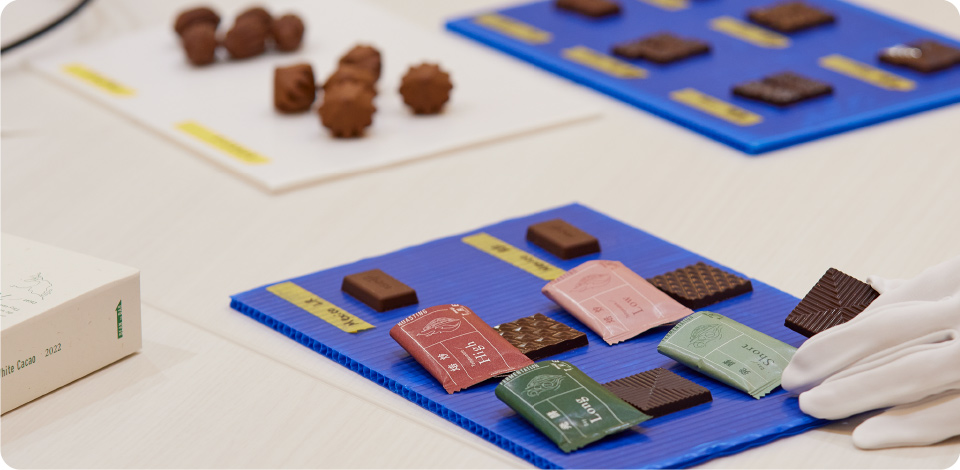
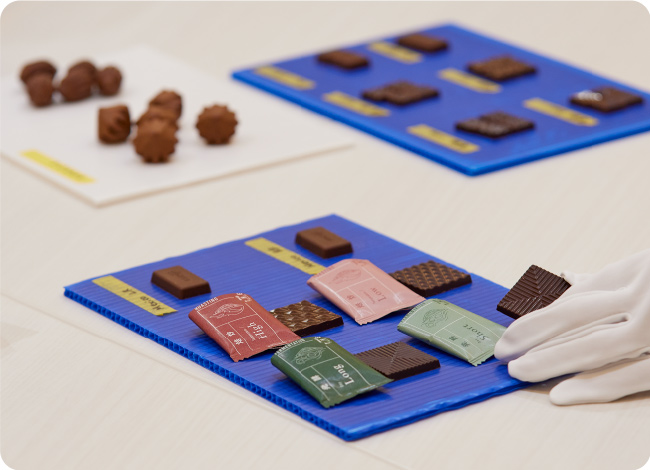
It was the birth of the Meiji The Chocolate that relieved the painful and frustrating days.
It is the continuation of these activities that I have been involved in MCS for over 15 years that I feel is important. It doesn't make sense to just pay the local cocoa farmers. We are working with cocoa farmers to create cocoa, but we do not have an exclusive contract. In addition, even if we enter into contractual relations, cocoa production areas may not have a reliable relationship. It often happens that if another manufacturer comes along with a higher price, they sell it to someone other than us. They also have life and thoughts, so we can't complain.
The only thing I am telling them is that "we want to continue buying cocoa that you have created", which does not end with transience. This is because, it is better for the cocoa farmers to continue their relationship with us, rather than to earn a temporary income, to maintain the quality of the cocoa beans and to stabilize their lives. Because of these exchanges, I think that MCS have continued to this day.
The most difficult period of MCS, which began in 2006, was from 2010 to 2014, before the birth of Meiji the Chocolate. This is because, up until then, we had been able to produce delicious cocoa through MCS, but we were unable to launch the products that full advantage of the flavors of cocoa.
At that time, cocoa produced through MCS was used for standard products, which were good in terms of their delicious taste, but we were not able to have customers enjoy the individuality of cocoa. Until the "Meiji The Chocolate" was made, I felt sorry for the production area and cocoa farmers.
We have experienced a variety of things through our MCS, and we have recently seen how cocoa farmers' incomes and livelihoods will stabilize.
Even today, cocoa production areas have consistently produced high-quality cocoa. It is a relief that the relationship we steadily built 15 years ago there and the production of cocoa continues, and our activities were not wrong.
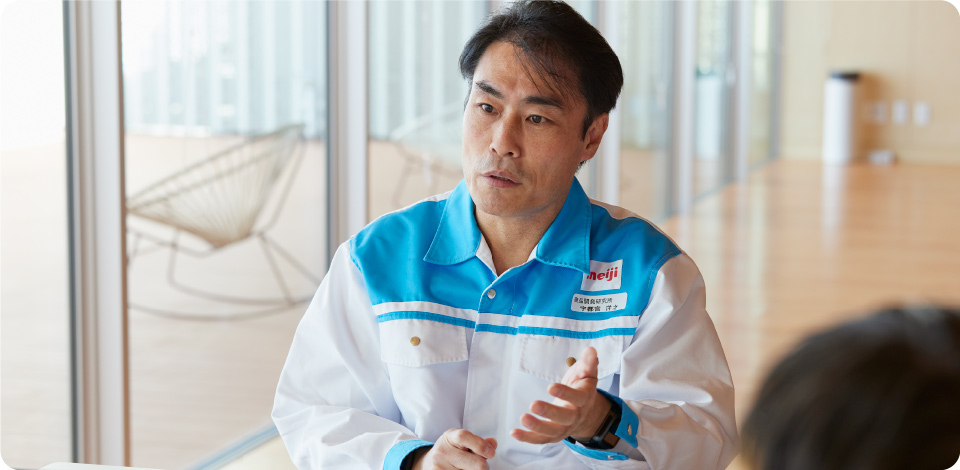
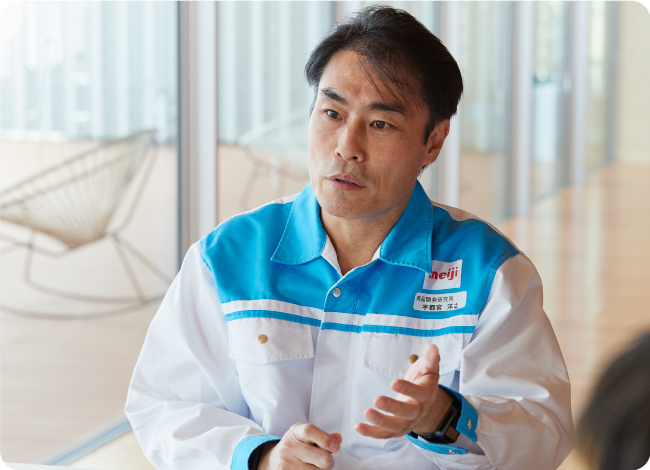
The possibility of cocoa is unlimited.
We would like to enrich farmers without changing our existing methods.
Recently, the words "SDGs" and "sustainable" have become more common, but this is not the case, for example, whether or not society can suddenly respond to them.
The North-South divide is indispensable issue for discussing cocoa and chocolate-making that we are involved in. Farmers who produce cocoa beans and those who consume chocolate.
There are various issues in cocoa making, such as environmental issues, child labor, and deforestation. However, there is a movement for those who consume chocolate not to buy cocoa from cocoa farmers who have such issues.
At first glance, this trend seems to be a good thing, but it can lead consumers to cut cocoa farmers off on their own.
It is only because we have actually walked with cocoa farmers on the ground, but simply abandoning issue cocoa farmers will not solve the problem fundamentally, but rather cause cocoa farmers to suffer. Farmers continue and maintain good cocoa making, and we pay for it. We are still in the midst of today's society, but we believe that it is necessary to build such a fair economic system.
I've spent most of my career facing cocoa beans. And it's getting close to my retirement.
I would like to pursue further possibilities for cocoa together with the younger generations who will be more willing to carry out MCS than ever before. Today, I'm crazy about cocoa, a rare variety of white cocoa, in order to make sustainable cocoa even more reality. I feel there is an unknown possibility that output other than chocolate will be able to achieve.
What I feel is needed now is to build a system that can improve the economic value of cocoa as a whole and return it to cocoa farmers. To make this happen, I will continue to work on MCS.
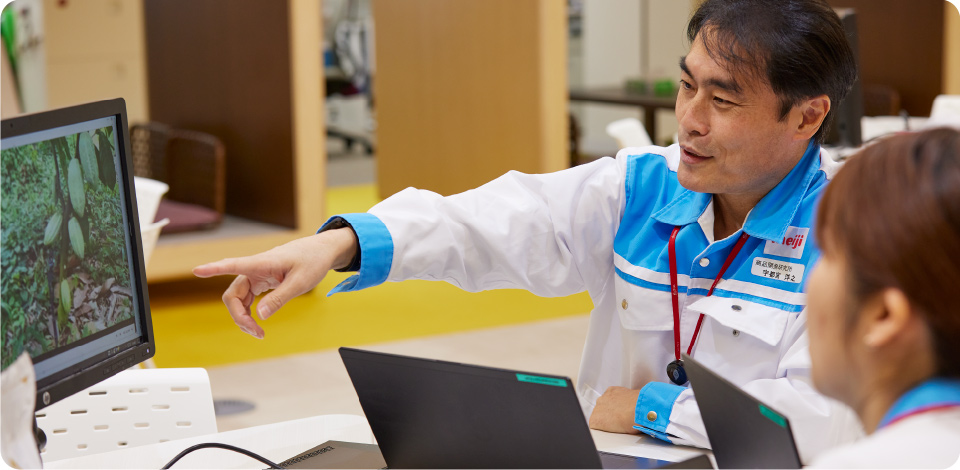
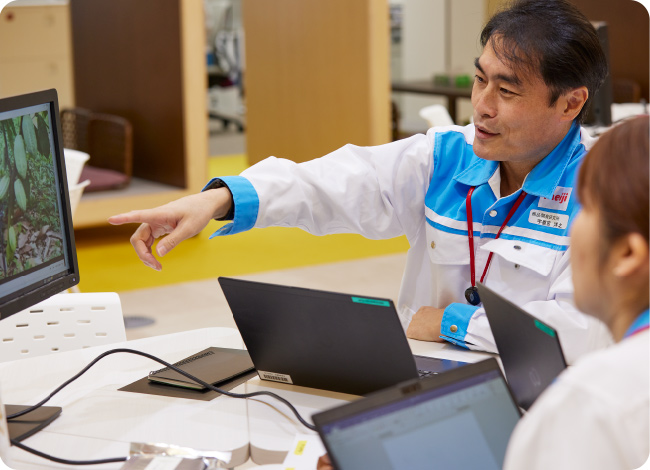

- A person who pursues the possibilities of cocoa.
Director, Cocoa Development Research Dept. - Hiroyuki Utsunomiya
Joined Meijiin 1993. After working in the manufacturing and engineering departments of cocoa and chocolate, he joined cocoa's R & D and product development laboratories.
Beginning in 2006, the company began activities in cocoa's production areas and became a founding member of meiji cocoa support. Currently involved in the development of chocolate. Have made many traveles to cocoa production areas many times, and highly trusted from the locals.







